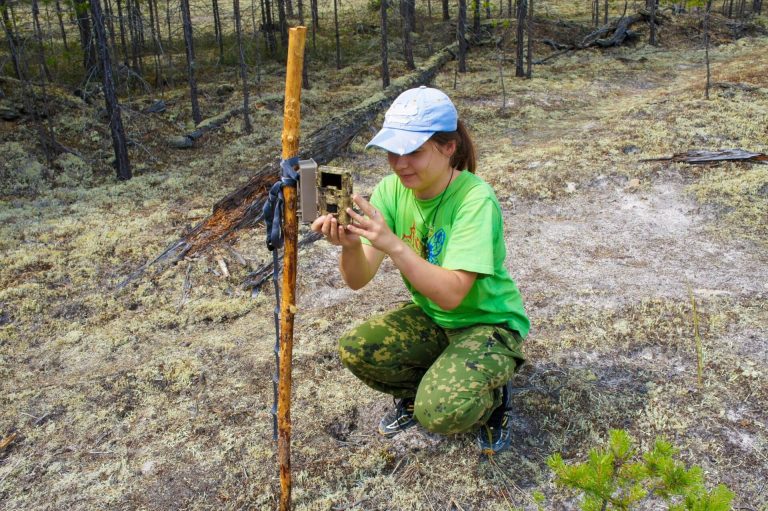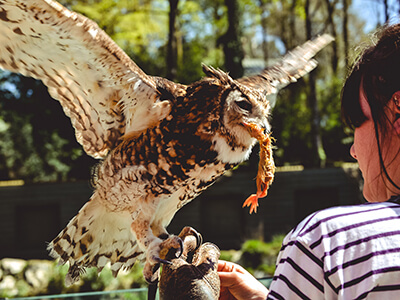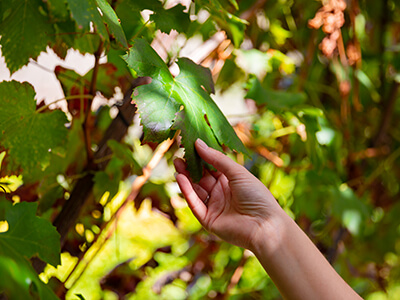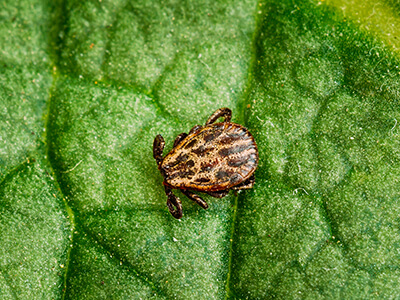High Educational Value
Nationally recognized educational quality at an affordable price.
*Source: O*Net/U.S. Bureau of Labor Statistics. Unity Environmental University cannot guarantee employment. Salary data represents averaged earnings for the occupations listed and includes workers at all levels of education and experience.

Unity Environmental University offers one of the best Bachelor’s online degrees in Biology by Bachelors Degree Center. The curriculum for Unity’s BS in Wildlife Conservation degree prepares students to enter the field as a field technician as well as setting them up to be successful in pursuit of continued higher education.

Wildlife managers influence wildlife species using three ‘levers’: habitat, populations, or humans. This course addresses the habitat dimension of wildlife management. You will engage in discussions and activities to create understanding of the basic concept of habitat and its components, how various species identify, select, and interact with their habitat.

In this course you will be exploring how plant-animal interactions help maintain ecological balance, shape ecosystems, and form the backbone of wildlife habitat. Plants are often just seen as the green backdrop behind the more charismatic animal species that we want to study and conserve, but without plants, there would be no habitat and there would be no ecosystems.

Insects, as the largest class of animals, have an extraordinarily large influence on ecosystem function. In this course, you will learn the basic taxonomy and life history of insects, as well as explore case studies involving the role of insects their impacts on human and wildlife health.

Wildlife conservation is the practice of protecting and preserving biodiversity by ensuring the survival of various species and their habitats. This field involves a blend of ecology, biology, and environmental science to address issues like habitat destruction, climate change, and poaching. Professionals in wildlife conservation work on projects related to habitat restoration, wildlife management, and endangered species recovery.
At Unity Environmental University, our wildlife conservation program equips students with the knowledge and skills to tackle these critical challenges. You’ll learn about ecosystem dynamics, species behavior, and conservation strategies while gaining hands-on experience through fieldwork and research projects. Graduates are prepared for careers in wildlife management, environmental policy, conservation education, and research. By promoting sustainable practices and policies, you can play a pivotal role in preserving our planet’s biodiversity for future generations.
The BS in Wildlife Conservation degree enables students to work effectively as wildlife biologists, managers, and ecologists for government agencies, environmental nonprofits, and environmental consulting businesses. This program emphasizes sustainable management of wildlife species through consideration of the applicable social, economic, and environmental concepts. This program also prepares students with sound understanding of modern environmental issues and the professional skills needed for effective functioning in modern natural resource organizations.
Your online education should be affordable and manageable. Thanks to our promise to keep tuition flat through 2030, you won’t be burdened with unexpected increases or fees.
Our team of distance education concierges will work with you through the admissions process to help you plan and pay for your degree. Learn more about the costs here.
Our comprehensive 120-credit program can be tailored to fit your schedule and goals! Completion time is flexible, determined by the number of credits you choose to take each term (8 terms/year) and less time with transfer credits. Without transfer credits, you can anticipate the following completion times:
General Education Core: 35 credits
Environmental Professional Core: 13 credits
Elective Courses: 39 credits
Program Core: 33 credits
For course requirements and a better look into your program, view our full course catalog. Then apply online for free to get started.
The wildlife conservation degree requires 120 credits. You may transfer in up to 90 credits from outside institutions. View our full course catalog for a better look into your program. Then apply online for free to get started.
Nationally recognized educational quality at an affordable price.
Committed to sustainable practices to prepare for a future of environmental awareness.
Dedicated to turning career and academic aspirations into tangible achievements.
Accepting up to 90 transfer credits to graduate sooner and save money.
Connect with experts who share your passion for working in the animal industry.
Ranked #1 independent university in the U.S. by the Social Mobility Index.
With up to 8 terms a year, you can take a break without jeopardizing financial aid.
Balance life, work, and education by studying when and where you want